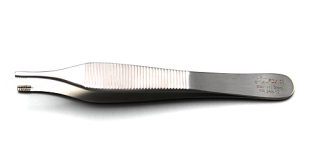The time alcohol enters the stomach and small intestine, the small blood vessels carry it to the bloodstream. About 20% of alcohol is absorbed through the stomach and most of the remaining 80% is absorbed through the small intestine.
Alcohol is known for its detrimental effects on the body over time. People who undergo alcoholism and have a long history are at risk of developing severe, chronic conditions. Alcohol suppresses your body system leading to impaired coordination, vision, reaction and judgment. It also increases drowsiness and can add risk for damages. Some of the more common alcohol-related conditions include cancer, liver disease and pancreatitis.
The alcohol digestion is a simple process so its stay in the body is dependent on the amount of intake. If the alcohol intake exceeds the normal drink share, blood and body tissues become pool of alcohol. The frequent alcohol intake results in brain and tissues damage. Alcohol slows down central nervous system processes, which affects almost every physical and mental activity carried out by the body. As soon as one drinks an alcohol the body readily accepts and absorbs it. So the how long alcohol stays in the blood also involves its digestion and absorption phases.

How long Alcohol stays in blood?
Alcohol is a vasodilator- it widens the diameter of blood vessels all through the body. That`s why it makes one feel warm and appear flushed. How long alcohol stays in your system depends on how much is the intake, how fast is metabolism, body size and gender. There aspects that can affect process such as weight, age, gender, metabolic rate, stress levels, strength and type of alcohol, the amount of food ingested and the health of the liver.
The amount of body fat can also affect the rate of alcohol absorption. A person with less fat will absorb alcohol faster than those with more fat. Alcohol one unit is equivalent to 10 ml of one hundred per cent alcohol. The average bottle of beer holds 330 ml. The percentage of BAC or blood alcohol concentration is measured to determine the concentration of alcohol in your blood.
Blood alcohol concentration determines how long it will take the body to get rid of the alcohol in your blood. Once alcohol is absorbed into the bloodstream it leaves the body in two ways. Ten percent of alcohol leaves through the breath, perspiration, and urine. The rest is broken down through metabolism. It takes about twelve hours for the blood to show a negative result on the blood test. But excessive amounts of alcohol intake would take long to completely eliminate the alcohol from blood
Alcohol Digestion
Alcohol is one of the handy depressant around the world. Unlike other drugs alcohol involves little to no digestion to break it down into a digestible form. In the stomach, 20 percent of the alcohol moves directly into tiny blood vessels that carry water and nutrients throughout the body. The remaining 80 percent is digested in small intestines where it enters another set of small blood vessels that travel through the body. The alcohol digestion slows down when it is taken with food. Slower absorption rates also increases the time to get fully intoxicated.
Alcohol Metabolism
Alcohol enters the liver after bloodstream where it is metabolized. The liver metabolizes alcohol at the same rate for everyone, regardless of weight and sex. The alcohol stays longer in system if taken in large quantity. On average, one ounce of alcohol is metabolized in one hour and makes .015 blood-alcohol concentrations. So it means that someone with a .015 blood-alcohol level will have little to no alcohol in their bloodstream after 10 hours.Liver metabolism rates also affect the feeling after continuous alcohol drinking.
The changes due to alcohol in body is two-phase or biphasic. When a person reaches the second phase where a blood-alcohol level exceeds to normal negative effects start to increase. The feeling of calm, happiness and relaxation start to turn into depression, irritability and disorientation.
Alcohol Absorption
There are many reasons that can influence the rate at which alcohol is absorbed into your system, and therefore also affect the rate at which your BAC (blood-alcohol concentration) increase or decrease. Food high in starches or fats, slow down the movement of alcohol from the stomach to the small intestines. Shocks also slow down the absorption. On an empty stomach alcohol results in pyloric shock which can extensively slow down the alcohol absorption.
Alcohol is also absorbed into the blood and tissues of the body when excess amounts remain in the bloodstream. Alcohol will start to accumulate in the blood and body tissues when someone drinks faster than the liver can metabolize. While comparing men and women, body chemistry can also affect a person’s alcohol absorption rate. A man’s body tends to have more water content than a woman’s and thus helps to dilute alcohol concentrations in the body. Lower body-water content can also make a woman’s body more susceptible to the damaging effects of alcohol.
 Health & Care Information
Health & Care Information 

